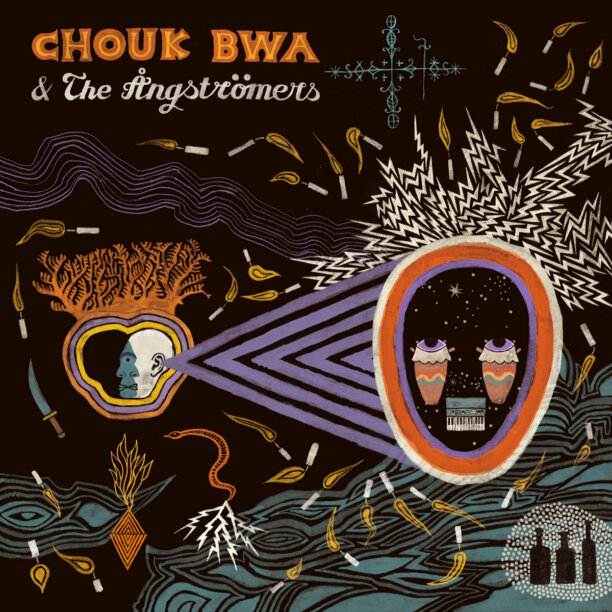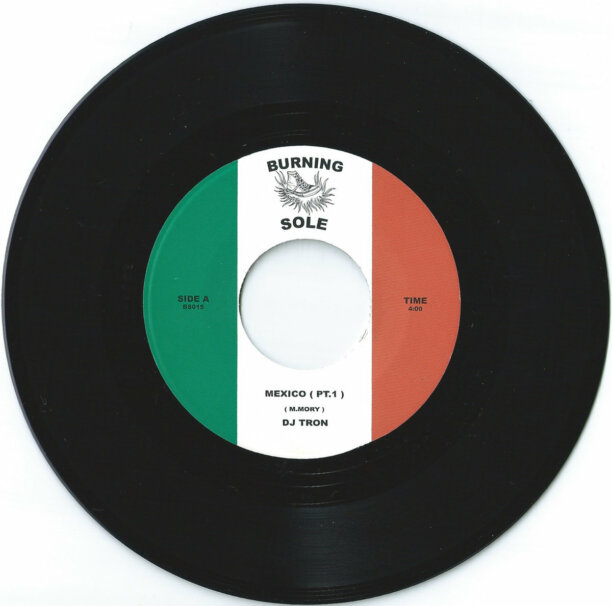Star Feminine Band
"Oh woman, African woman / Oh woman, Beninese woman / Black woman, get up, don't sleep / Oh black woman, get up, don't sleep / You can become president of the republic / You can become the country’s Prime Minister / Get up, something has to be done / African woman, be independent / The country needs us, let's go to school / Africa needs you, you have to work / The world needs us, stand up, let's stand up / African woman, be independent" – Star Feminine Band "Femme Africaine"
It's 2020 in our books and some of you may be asking yourselves, why it still seems necessary to emphasise gender when it comes to introducing new artists or in this case bands. Of course, we too are well aware of the fact that the road to global gender equality or even equanimity towards gender equality remains obstructed by significant barriers to be overcome. That being said, the project we are about to introduce admittedly caught our attention for the simple reasons that it's an all-female formation and the list of female bands in the history of popular African music is a short one.
Benin's Star Feminine Band is a group of young girls hailing from a remote region in the West African country's northwest, "that is currently shaking up the world of garage rock with breathtaking freshness, ingenuity and energy, playing spot-on, loud and clear." The release’s detailed liner notes provide a more comprehensive view on the various external, mainly European, influences as well as key political, social and emancipatory movements taking place on the African continent during the second half of the 20th century. Popular references include the names of Cameroonian writer and composer Francis Bebey, Mali's Oumou Sangaré or Benin's Angélique Kidjo.
"In the early 1960s, the rich local traditions of Benin, starting with trance and voodoo ceremonial music, began to merge with Afro-Cuban, Congolese rumba and high-life. Dozens of orchestras, artists and labels participated in this unprecedented movement. Unlike its population count, Benin is the most prolific African country in terms of record production, especially during the extraordinary exhilaration of the 1970s." The '70s also marked a period of awakening on the African continent in terms of Women's rights. "In 1975, Unesco promoted the International Women’s Year, an event designed to raise awareness of the role of women in many countries, where their role is too often downplayed or flouted. This initiative had a considerable impact on the African continent." That did not, however, mean that Women's rights were a given: "The enthusiasm of these years of emancipation dropped during the 1980s, with its share of forced unions, early pregnancies, various forms of violence and female genital mutilation, particularly in Sahelian Africa.” Actually, to this day, “the situation of women in many rural areas of Africa and also sometimes in large metropolises, has hardly changed.”
In North-West Benin lies Natitingou, a landlocked crossover city controlling access to the Atakora hills region, largely isolated from the rest of the country. “Culturally and musically, this region is more influenced by the Sahel than by the South of the country, by sato, voodoo and modernised folklore developed by groups like the Black Santiagos orchestra which gave birth to Afrobeat in the mid-1960s, before being adopted and developed by Fela Kuti.” It also happens to be the region, that is home to the seven young stars of the Star Feminine Band, now aged nine to fifteen.
Young girls growing up in this region generally have little to look forward to. They are often taken out of school at a young age to work. Forced marriages and early pregnancies are a common occurrence. Aware of these grievances, in 2016, a musician by the name of André Baleguemon had the idea to form "an exclusively female band rooted in the concerns of its time" and published a press release "offering to help train girls in music for free." His call was answered and seven highly motivated girls were selected, some of which "had never even seen these types of instruments before."
The girls quickly took to their new found passion, developing rapidly and happily putting in the necessary work before a chance encounter with French sound engineer Jérémie Verdier further accelerated the process. Calling on his Spanish friends Juan Toran and Juan Serra, the band's first recordings were soon completed. This eventually led to Jean-Baptiste Guillot (producer and founder of Born Bad Records) hearing the tapes and sealing the deal. And today marks release day for the Star Feminine Band’s self-entitled debut longplayer.
The album’s eight tracks are sung in different languages, to ensure that their messages carry far and wide. “They bring their ideas. The dream of these girls is to become international stars. They must show the importance of women throughout the world. Speak of Africa, accomplish great missions around the values of women. They talk about female genital mutilation, abuse and violence against girls. We want to include these subjects in the political debate in Benin, then elsewhere in Africa if this is ever possible,” André Baleguemon emphasises. One thing is for sure, these talented young girls breathe new life into the continent’s feminine cause with confidence, originality, a free-spirited, carefree attitude and an astounding first record. There's also a documentary in the making.












